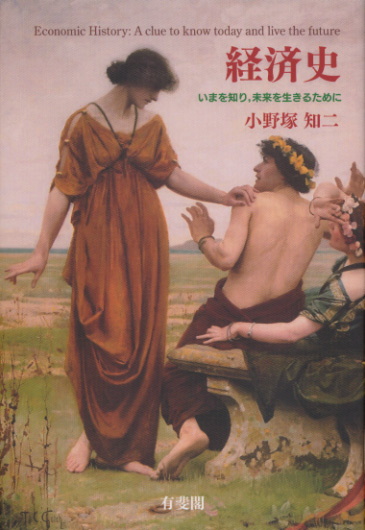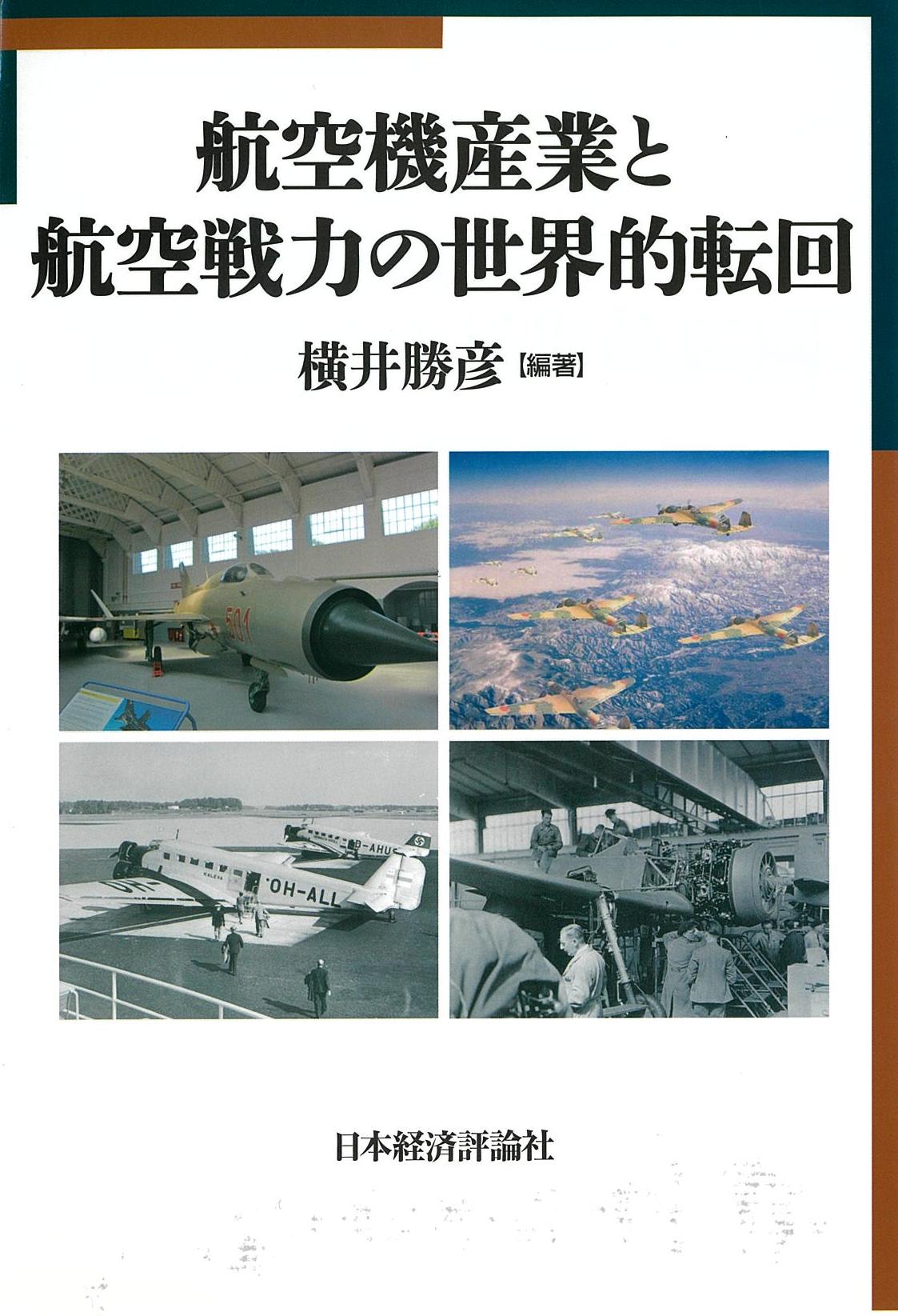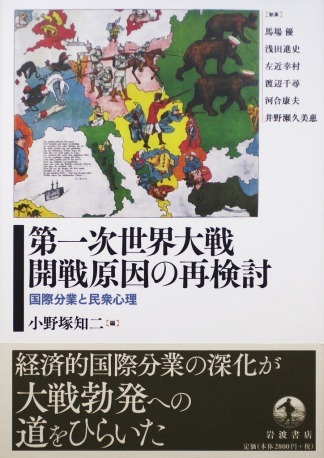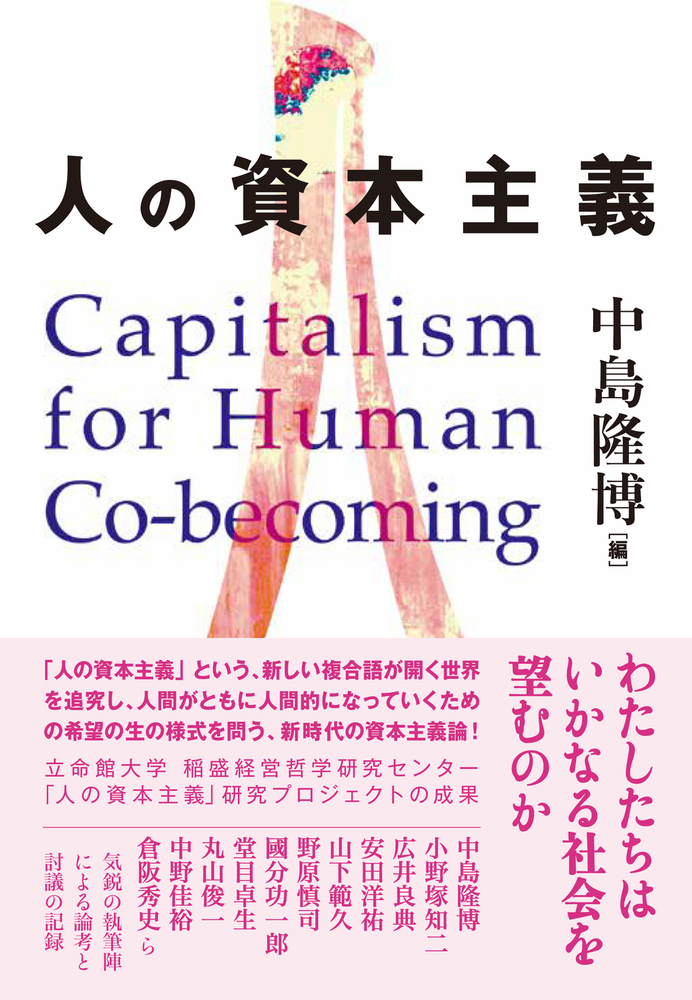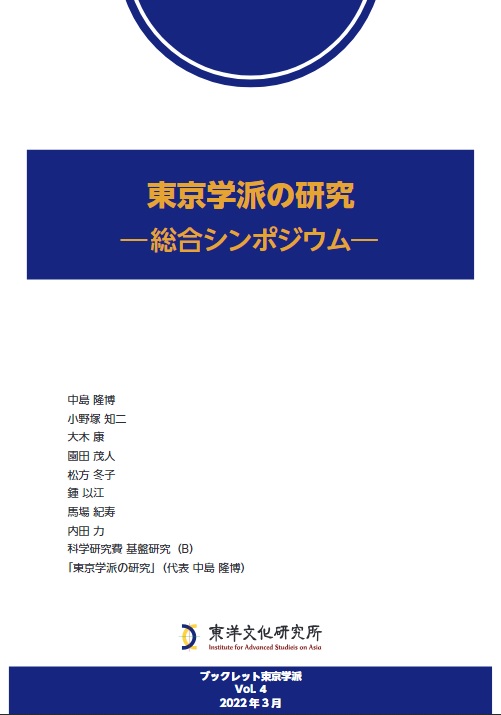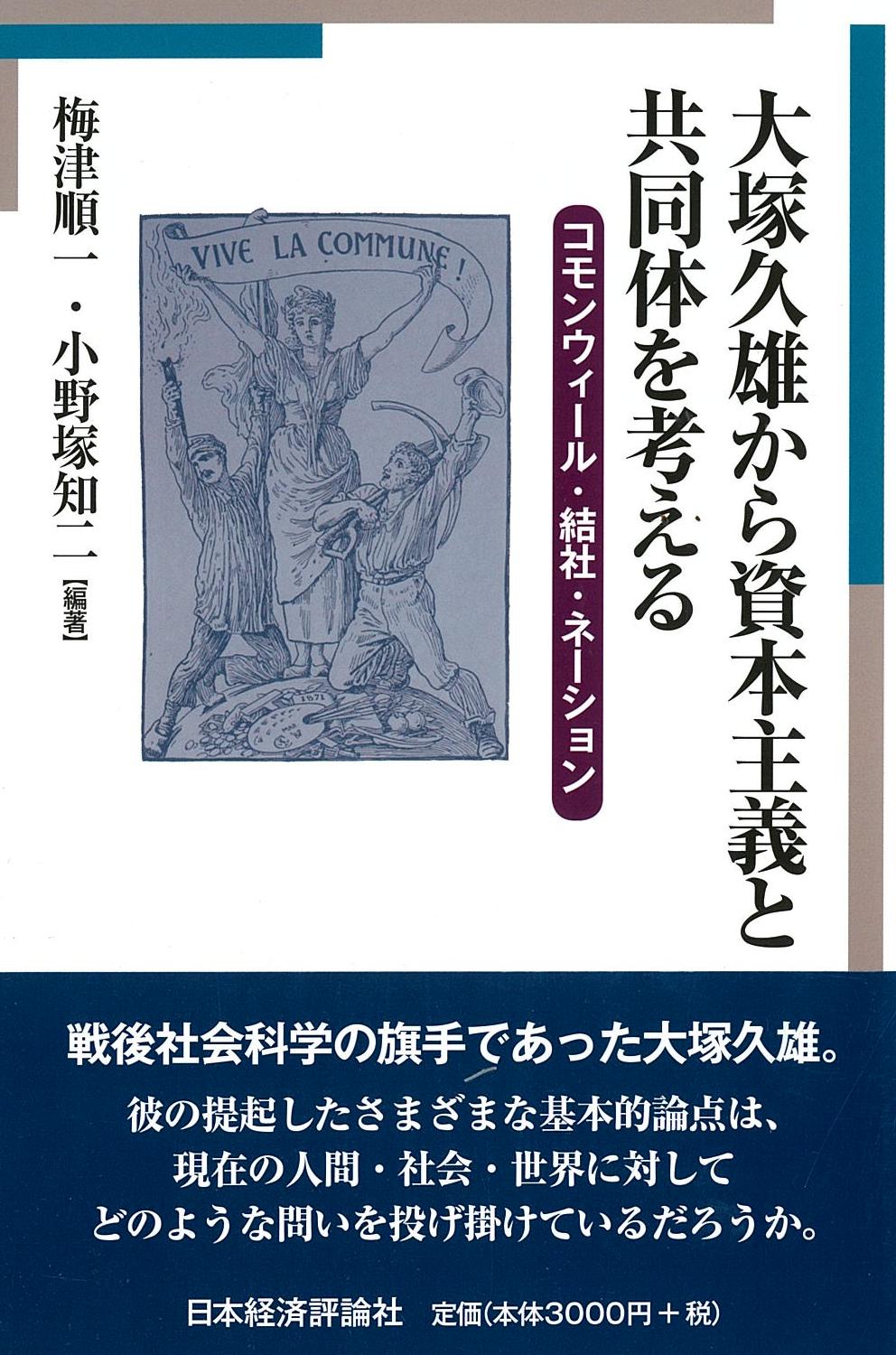
Title
Otsuka Hisao kara Shihon-Shugi to Kyodotai wo kangaeru (Considering Capitalism and Community from Hisao Otsuka’s Perspective - Commonweal, Association, and Nation)
Size
336 pages, 127x188mm
Language
Japanese
Released
January, 2018
ISBN
978-4-8188-2483-6
Published by
Nihon Keizai Hyouronsha Ltd.
Book Info
See Book Availability at Library
Japanese Page
This book collects the proceedings of the symposium “Capitalism and Community,” held on November 19, 2016, commemorating the 20th anniversary of Hisao Otsuka’s death.
Hisao Otsuka is known as the standard-bearer of post-war social sciences, which pointed the way academically to postwar reforms in Japan after the Second World War. However, his scholarship was formed during the wartime period. During a time when free academic exchange was cut off both internationally and psychologically in a Japan that was headed for catastrophe, Otsuka explored directions for structural reformation of Japan’s ancien régime with universal language.
Twenty years after Otsuka’s death, participants of this symposium gathered with the shared purpose of retaking stock of Otsuka’s academy legacy in light of the current state of affairs in the world and society. They sought to wipe off the dust that had accumulated the various concepts and methods conceived by Otsuka and bring to light what can be used after emendation and what is lacking in his bequest.
Otsuka’s central academic interest was, above all, the rise of capitalism from the feudal system and its expansion and entrenchment. His work often invited misunderstanding that he saw no communality whatsoever in the resulting capitalistic society. Indeed, as Otsuka himself repeatedly stated, capitalism’s developmental process has its final phase in the dismantling of traditional communities. It has long been understood in economics as a discipline that in capitalist society and the market economy, economic agents are individually isolated and disconnected, and their actions are coordinated by the market.
However, students who were taught firsthand by Otsuka recollect that his true intention was not to deny human communality in modern capitalist society. Still, what Otsuka actually left behind in writing emphasized modern people’s independence, self-respect, and autonomy. While he focused attention on modern people’s practice of neighborly love, he did not articulate discussions concerning their communality and sociality in published works like Kyodotai no Kisoriron (Fundamental Theory of the Community).
Participants of the symposium therefore sought to address Otsuka’s legacy as it relates to modern community in five areas: commonweal, association (cooperation), the national economy, citizens and nation state, and religious community. These discussions are collected in the first part of this volume. The resulting evaluation explores not only the static values informing the concepts and methods left by Otsuka today but also the dynamic aspects of Otsuka’s intellection formation, including his academic motivation and concerns. The participants examined how Otsuka’s academic interests developed as he studied the formation process of modern capitalism in order to comprehend Japan’s economic history throughout its prewar, wartime, and postwar periods, including its time of rapid economic growth, student protests in the 1960s, and the end of the bubble era.
In this sense, this volume is not simply an evaluation of a scholar’s legacy. It has the characteristics of a memorandum addressed to the audience today concerning how to approach Otsuka’s scholarly achievements when dynamically applying them today.
In the second part of this volume, symposium participants freely contributed their thoughts on Hisao Otsuka’s body of works and its implications for today. Also included are a brief chronological table of Otsuka’s life and a short commentary on a basic bibliography of his works. The editorial team would be pleased if this volume can serve as bridge between Hisao Otsuka’s wide-ranging achievements and today’s young generation.
(Written by Tomoji Onozuka, Professor, Graduate School of Economics / 2019)



 Find a book
Find a book


 eBook
eBook